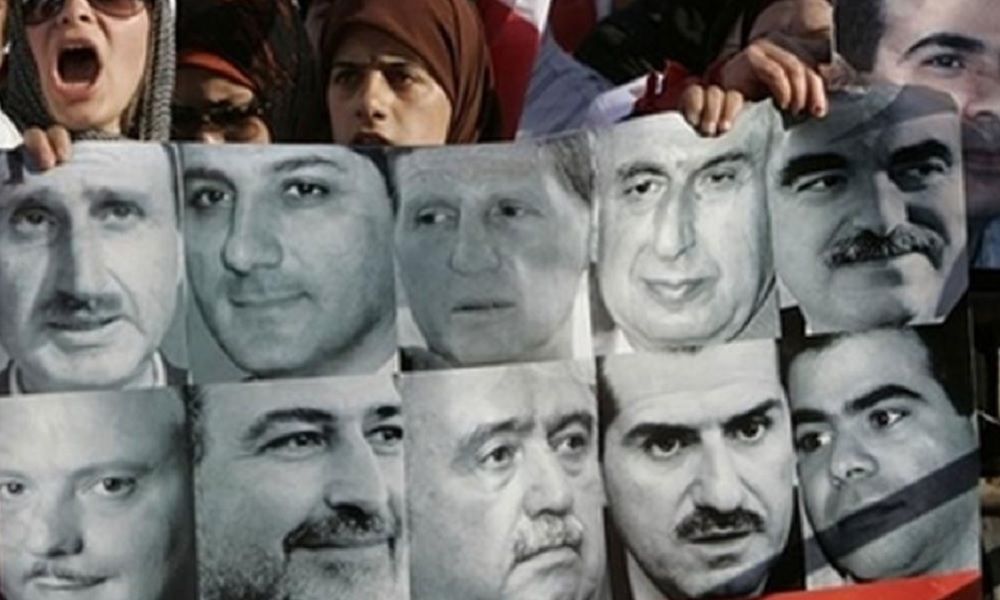
In an unprecedented move to revive investigations into long-unsolved political assassinations, the Lebanese judiciary has appointed eleven investigative judges to reopen several sensitive cases, some dating back to the country’s civil war.
Many emblematic cases that had remained stagnant for decades have now been distributed among different magistrates as part of the Ministry of Justice’s campaign to combat impunity.
According to reports from local media, the appointed judges and their respective cases include magistrate Amira Sabra, who is set to handle the assassination of Sheikh Ahmad Assaf, a Sunni religious figure killed in 1982 under unclear circumstances. His unresolved murder occurred during a time when both the Palestine Liberation Organization (PLO) and Syria exerted significant control over Lebanon – control to which Sheikh Assaf was strongly opposed.
Judge Fadi Akiki has been tasked with investigating the attempted assassination of Moustapha Maarouf Saad, son of leftist Sunni leader Maarouf Saad, who was killed during a protest in Saida in 1975. Moustapha Saad survived an assassination attempt in 1985, believed to be linked to his anti-Israeli political stance as head of the Popular Nasserist Organization.
Judge Yehya Ghaboura will lead the investigation into the Ehden massacre of 1978, in which MP Tony Frangieh, son of former President Sleiman Frangieh, was killed along with his wife Vera, their daughter, and several companions. The attack stands as a pivotal and bloody chapter of the Lebanese civil war.
Meanwhile, Judge Joseph Tamer will examine the attempted assassination of former President Camille Chamoun, a key Christian political figure and founder of the National Liberal Party, who was targeted in 1980 during a period of intense rivalry between Christian militias.
Judge Alaa el-Khatib will investigate the Bourday clashes in Baalbek, a 1998 armed conflict in the Bekaa region involving local clans and armed groups affiliated with political parties. The violence left several dead and highlighted the region’s ongoing instability.
Judge Fadi Sawan has been appointed to investigate the 2002 assassination of former minister Elie Hobeika, a former militia leader implicated in the Sabra and Shatila massacre of 1982. Hobeika was killed in a car bombing in Hazmieh.
Judge Samer Younes will oversee the case involving the assassination of MP Antoine Ghanem and his companions. A staunch anti-Syrian parliamentarian, Ghanem was killed in a 2007 car bombing, part of a wave of assassinations targeting anti-Syrian figures following 2005.
The 2008 assassination of Sheikh Saleh Aridi in Baisour will be handled by Judge Kamal Nassar. Aridi was a Druze leader and co-founder of the Lebanese Democratic Party, killed by a bomb attack.
The 2006 assassination of Minister of Industry Pierre Gemayel, a prominent anti-Syrian member of the Kataeb Party, will be investigated by Judge Sami Sader. His murder deeply shook the March 14 coalition, already reeling from a string of political attacks.
Judge Samer Lichaa will lead the investigation into the killing of journalist Samir Kassir, one of the most outspoken critics of the Syrian regime. Kassir was assassinated in a car bombing in Achrafieh shortly before the withdrawal of Syrian troops from Lebanon.
Lastly, Judge Claude Ghanem will take on the case of the assassination of MP and journalist Gebran Tueni, director of the Lebanese daily An-Nahar, who was killed in a car bombing in Mkalles. His death was part of the same wave of political killings that followed the assassination of former Prime Minister Rafic Hariri.
A Symbolic and Long-Awaited Step
The reopening of these investigations, some dormant for over four decades, marks an effort to restore public trust in Lebanon’s judiciary. While it raises hopes of finally uncovering the truth, it also risks reopening deep wounds, as these cases remain closely intertwined with the country’s history of political and sectarian division.

Comments